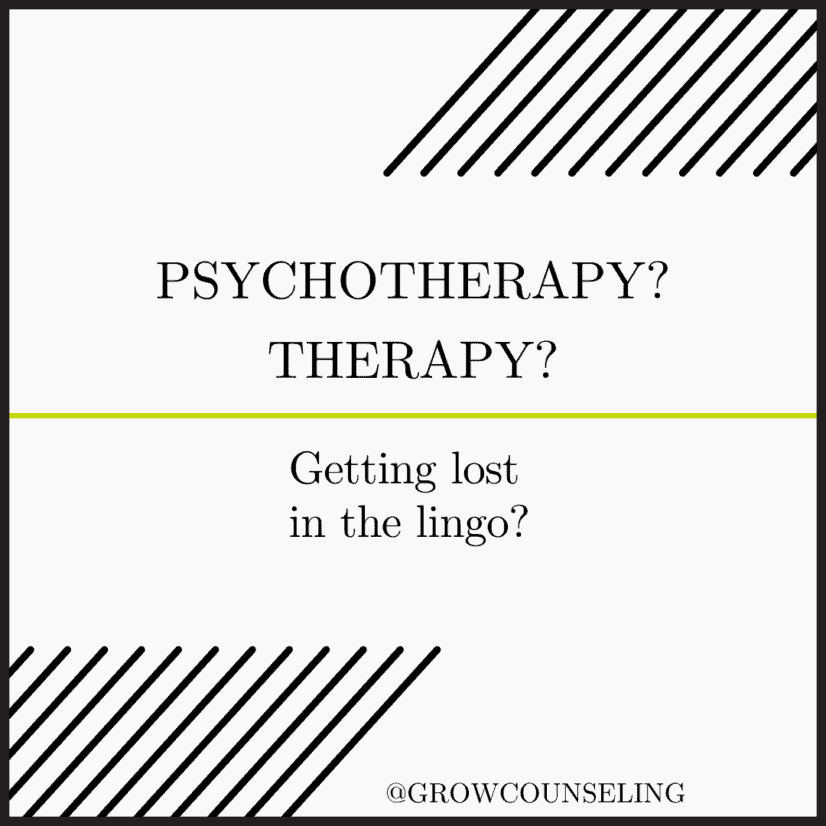What is the difference? Is there a difference? Getting lost in the lingo? What do all those letters behind their name mean? Mental health professional titles can be confusing, parsing out the differences is an important part of the process to discover resources that will fit your needs best!
Let’s parse out the differences:
- Therapy: is conducted by a licensed therapist, licensed marriage and family therapist, or licensed social worker who has completed a Master’s level program in mental health counseling or social work. They can provide talk therapy through building an interpersonal relationship with clients, families, and couples and are growing experts in the healing process.
- Psychotherapy: is more of a “catch-all” term for therapy. Some distinguish psychotherapy as long-term; however, therapy can be long-term as well.
- Psychoanalytic: is one of many theoretical approaches to therapy. It is a specific theory of therapy that outlines the mind, conflict, and human behavior.
- Psychiatry: is conducted by a professional individual who has completed medical school, internship or residency, with a specialization in neurobiology, the brain/mind. They can prescribe medication and are growing experts in how the mind body connection plays out medically.
- Psychology: is conducted by a professional individual who has completed their doctorate program in clinical psychology, post-doctoral work. They are growing experts that can provide assessments and talk therapy to treat mood-disorders, emotion regulation, overall wellness, and the connection between the mind and behavior. With the exemption of some states, psychologists can not prescribe medication or perform medical procedures.
Discovering what mental health services are best for your unique needs is crucial to healing, thriving, and improving overall wellness! At times it is appropriate and beneficial to have a team of mental health providers such as, a psychologist to provide an assessment and recommendations, a therapist to journey alongside you in talk therapy, and a psychiatrist or doctor that specializes in mental health to prescribe appropriate medication to supplement your mental health or even having your primary care physician to collaborate with your therapist or psychologist. Always advocate for yourself by being honest about what you are experiencing and asking questions to a mental health professional to help differentiate what you need. This process can feel daunting, but asking a therapist, psychologist or psychiatrist is a wonderful starting point to collaborate with you about potentially partnering with other local mental health professionals!
Resources:
https://www.psychologytoday.com/us
https://www.counseling.org/aca-community/learn-about-counseling/what-is-counseling/find-a-counselor
https://www.lpcaga.org/find-a-counselor#/
https://www.psychologytoday.com/us/psychiatrists
Written by: Catherine Virden

